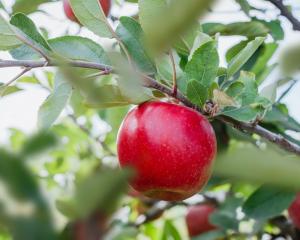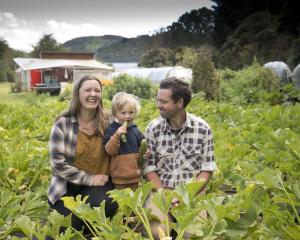A Southland initiative got a milky boost from the Government to help in its goal to become the main producer of oat milk in the country.
Economic and regional development minister Stuart Nash visited Invercargill yesterday where he announced the Government would invest up to $6million in New Zealand’s first and largest carbon neutral plant-based beverage processing facility — with oat milk the first product off the production line.
The project, carried by New Zealand Functional Foods, would bring the construction of a $50million factory in Makarewa to produce 80 million litres of oat milk annually and generate about 50 new jobs when operating by the end of next year.
New Zealand Functional Foods acting chief executive Roger Carruthers said half of the oats grown in the country come from Southland and its quality was among the best in the world.
However, due to the lack of appropriate facilities, the country imported about 80% of its oat milk from overseas with 60% of the oat milk consumed by New Zealanders coming from Australia.
The dream was to have all Kiwis drinking only oat milk produced in Southland, he said.
"The oat milk value chain in New Zealand is broken because we don’t have a large-scale manufacturing facility capable of producing quality oat milk that customers want.
"With this initiative, we have the capability to do that. We certainly will be able to produce as good — if not better — [product] than any other oat milk factory available around the world."
While the first product would be oat milk, there was potential for production of any plant-based beverage, he said.

"It is only a small portion of the money that needs to be raised but it recognises [that] we’ve got to move away from growing, sending overseas and then importing back the finished product. We’ve got to be able to do it here and keep the wealth here."
He said in his own cafe in Napier, he had noticed a huge increase on demand for plant-based milk in the past months.
Their staff had used about two litres of oat milk weekly and now was using about 10 litres, he said.
"Plant-based milk alternatives are a fast-growing segment of domestic and international consumer markets, with the amount spent by Kiwis on plant-based milks almost tripling from $52million in 2017 to $144million in 2019 — so the demand is definitely there."
It was not a matter of dairy milk or oat milk, it was about adding another innovative and profitable industry to the region and both would work together, he said.
"Of course dairy will continue to play a very important role in the country’s production moving forward.
"We know that oats grow well in Southland, and being low in water use, land use and emissions, they are an excellent raw ingredient for an environmentally sustainable alternative-milk option."
The funding for the new factory will come from the Regional Strategic Partnership Fund — the successor to the Provincial Growth Fund.














